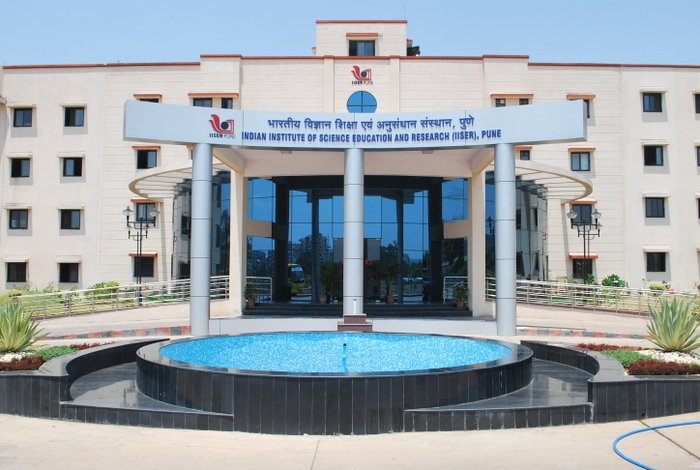IISER students to work on LIGO Project

Students of physics from Indian Institute of Science Education and Research (IISER), Pune, may get to train at the Laser Interferometer Gravitational Wave Observatory (LIGO), in the fifth year of their integrated programme.
The world's third advanced LIGO detector will be set up in India and it will be an important project in the field of fundamental sciences in the country. Since a large number of skilled manpower would be required by 2020 to run the operations, the LIGO team from the US has been touring India and holding talks with several scientific institutions to discuss the opportunities that lie ahead for Indian scientists and post-doctoral fellows. It is yet to be decided where this observatory will be set up.
The LIGO-India observatory will be set up as a joint scientific collaboration between LIGO laboratories of the California Institute of Technology (Caltech), Massachusetts Institute of Technology (MIT), the US, and three lead Indian institutions, namely, the Inter-University Centre for Astronomy and Astrophysics (IUCAA), Pune, Institute for Plasma Research (IPR), Gandhinagar, and Raja Ramanna Centre for Advanced Technology (RRCAT), Indore. This will be a nationally coordinated project and a number of other Indian institutions would also be participating.
The visiting LIGO team, which included Frederick Raab, associate director for operations, LIGO Laboratory, and Albert Lazzarini, deputy director, LIGO Laboratory, told TOI on Tuesday that by 2020, the observatory here in India would need trained manpower to commission complex instruments. Raab said, "At the laboratories in the US, it took years for our people to understand 350 high instruments. The challenge now before India would be to train people who can use these instruments. We are visiting institutions in the country and checking on the readiness of the Indian resources."
The team has also proposed that post-doctoral fellows could take up short duration training, varying between three and nine months, at the LIGO observatories abroad and come back to India with operational knowledge. "The students could gain skills by working with the experts here and also learn about the research mechanism. Two scientists from IUCAA have undertaken a similar training for nine months at LIGO, in the US, and they are back in India now doing further research," Lazzarini said.
According to Sunil Mukhi, chair and professor of physics faculty at IISER, such an arrangement would be a win-win situation for both the institutions. Raab had visited IISER, Pune, some months ago and was impressed with the calibre of students and flexibility about their final-year project. "I had invited Fred to deliver a public lecture on Monday. I understand this has generated great enthusiasm among our students. After all, this is a path-breaking experiment which resulted in the discovery of gravitational waves just a year ago. Moreover, India is becoming an active player in it and one of the "arms" of the experiment is to be installed in India in the coming years. So it is clearly attractive for our students to receive training at LIGO following which they could complete their PhD in related areas. I'm sure that postdoctoral and faculty positions in India will be awaiting those who excel in their work."
Raab said, "Such a front-ranking scientific experiment on Indian soil will be a source of inspiration for young and budding scientists. This will help launch an entirely new discipline of gravitational-wave astronomy in the country."
IISER Pune has a five-year integrated bachelor's-master's programme in which the fifth year is entirely dedicated to a research project leading to a master's thesis. The students are free to carry out this project in any good scientific institution, in India or outside, as long as funding can be arranged for their stay. In the past, a few have gone to Germany and the US, among other countries.
Image Source : http://pebblesii.com/images/iiser.jpg
Post Your Comments for this News
Related Articles
-
Tips for Teaching Coding in Classroom
2017-06-16 12:39:35
-
How to Prepare for Student Orientation Day
2017-05-18 12:53:05
-
World Day for Cultural Diversity for Dialogue and Development.
2017-05-18 10:27:42
-
Big Data for Big Impact #WTISD-17
2017-05-17 09:28:16



